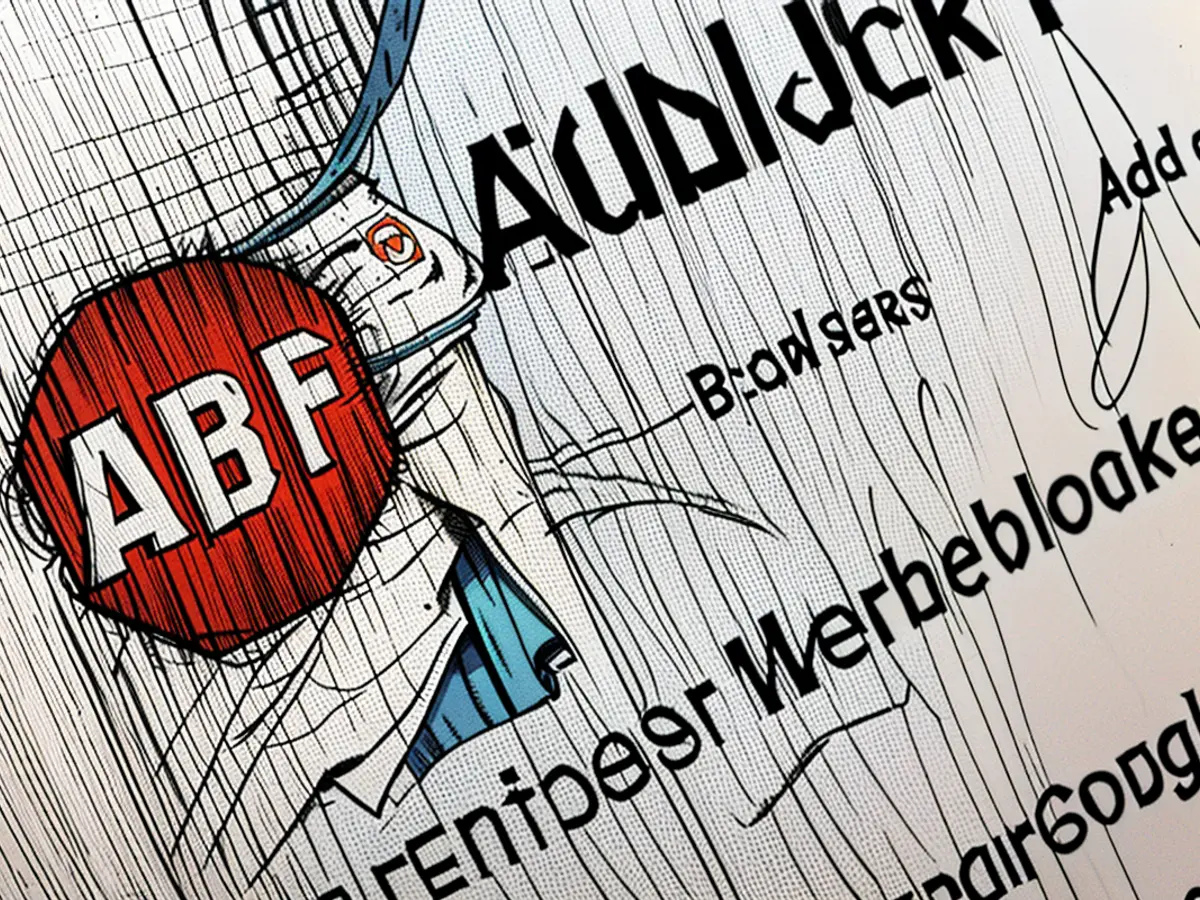Federal Court of Justice hearing - Why are advertising blockers so controversial
Germany's largest publishing house, Axel Springer, has been trying for years to legally stop Adblock Plus, the ad blocker developed by the Cologne company Eyeo, which blocks advertising on websites. The ad blocker recognizes and removes advertising elements based on specific HTML commands or the URLs of advertising servers.
What is the subject of the controversy?
In the case before the Federal Court of Justice (BGH), the issue is Eyeo's Adblock Plus software, which blocks advertising on websites. The ad blocker identifies and removes advertising elements by analyzing the source code of the website. This can include certain HTML commands or the URLs of advertising servers. If the URL is associated with a service provider in the advertising industry, the content from that server may be prevented from being loaded and displayed under certain conditions.
How did the first case before the BGH go?
In the initial attempt, Springer tried to stop Adblock Plus with a competition law complaint. The BGH saw no unfair competition or unlawful aggressive business practices in Eyeo's offering in its April 2018 ruling (I ZR 154/16). The decision on the use of the ad blocker lies with the users of the websites and not with the defendant company. The BGH was also not concerned that Eyeo had received money from advertising companies to have their ads passed through Adblock Plus as "acceptable advertising."
How does Springer argue in the second attempt?
Springer is relying on copyright law, which the publisher claims it owns for the HTML codes. HTML stands for HyperText Markup Language and is the standard markup language used to create and structure content on websites. "Ad blockers modify the programming codes of websites and thereby, we mean: unlawfully, interfere directly with the constitutionally protected offering of media companies," said a spokesperson for dpa. Ad blockers not only undermine a central funding basis for journalism but also long-term threaten open access to opinion-forming information on the internet.
What is Eyeo's response to the allegations?
Eyeo stated during the proceedings before the Hamburg District Court and the Hamburg Higher Regional Court that the demanded equating of a website's underlying HTML codes with a computer program would have far-reaching consequences. It would not only mean the end of a barrier-free and secure internet but also mean that internet users would no longer be able to decide for themselves how they configure their browsers and see the internet. App developers would have to ask each website operator for permission to use their application on their site. This would lead to a significant legal uncertainty.
How have the courts viewed the new case so far?
Neither the Hamburg District Court nor the Hanseatic Higher Regional Court were convinced by the publisher's argumentation. The manipulation of the program flow by the ad blocker is not a modification of the program. It remains open whether the files transmitted to the user upon requesting a website are protected by copyright as computer programs and whether the publisher has exclusive use rights. (AZ: I ZR 131/23)
Court hearing scheduling of the BGH
- In the ongoing legal battle, Axel Springer is now arguing that they hold the copyright for the HTML codes used on websites, which Adblock Plus, developed by Eyeo, allegedly infringes upon.
- The Federal Court of Justice in Karlsruhe, Germany, will hear the second case brought forth by Axel Springer, where they argue that ad blockers like Adblock Plus unlawfully interfere with their constitutionally protected offering of media content.
- The Advertising industry is closely watching the outcome of this case as Adblock Plus has been a significant disruptor in the field of online advertising, blocking ads on websites across the Internet.
- If Axel Springer's copyright claim is upheld, it could have major implications for the Advertising industry, potentially leading to stricter regulations and more limitations on the use of ad blockers.
- Karlsruhe, home to the Federal Court of Justice, has become a focal point for this conflict between the German media giant and the Cologne-based Adblock Plus developers.
- Media companies and the Adblock Plus developers are engaged in a complex negotiation, with the ultimate goal being to strike a balance between protecting media companies' revenue streams and maintaining user privacy and control on the Internet.








